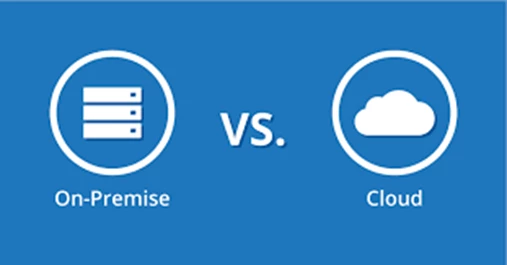
Partner Article
On-prem v cloud data breaches: where is the safest place for your data?
According to the Cost of a Data Breach Report by IBM, the average total cost of a data breach for businesses in the UK stands at £2.9 million. This represents an increase of 9.4 per cent from the previous year’s report. The report also found that the average cost per compromised record was £98 which is higher than the global average of $146 USD per record.
Obviously, the cost of a data breach can vary depending on a range of factors, including the size of the organization, the industry, the type of data compromised, and the severity of the breach. However, the cost of a data breach can be significant, and can include expenses related to legal fees, regulatory fines, data recovery, and damage to brand reputation.
Given the potential costs of a data breach, it is important for businesses to take steps to protect their data from unauthorized access. One question that often arises is whether it is safer to store data on-premises or in the cloud. The Verizon Data Breach Investigations Report found that on-premises breaches accounted for 69 per cent of all breaches, while cloud-based breaches accounted for 24 per cent. Similarly, a report by IBM found that 41 per cent of the incidents analysed involved on-premises systems, compared to 24 per cent involving data stored in the cloud. Unsurprisingly, therefore increasingly organisations are looking towards cloud solutions.
There are many benefits to storing data in the cloud that businesses should consider. One of the main advantages of cloud-based solutions is that they allow for more effective data hygiene management. With cloud-based data hygiene solutions, businesses can automate data cleansing and management processes, reducing the risk of human error and ensuring that data is always up-to-date and accurate; all within a secure environment.
Another key advantage of cloud-based solutions is that they provide greater flexibility and scalability. With cloud-based data hygiene solutions, businesses can easily scale their data management systems up or down to meet changing needs, without the need for significant investment in hardware or infrastructure. This can be particularly beneficial for businesses that experience fluctuations in demand or that need to rapidly scale their operations in response to changing market conditions.
For example, the UK government has recently migrated a significant amount of its data to the cloud. The government’s decision to move to the cloud was driven by a need for greater flexibility and scalability, as well as a desire to reduce costs and improve security. By moving to the cloud, the UK government was able to reduce its hardware costs and improve its data security, while also making it easier to manage and access data across different departments and agencies.
In addition to these benefits, cloud-based solutions also provide businesses with greater agility and resilience. With cloud-based data hygiene solutions, businesses can quickly respond to changing market conditions or emerging threats and can easily recover from data breaches or other disruptions. This can be particularly important for businesses that operate in highly competitive or rapidly changing industries, where the ability to quickly adapt and respond to new challenges is critical to success.
What is clear as more and more organisations migrate to the cloud, cloud-based solutions will continue to play an increasingly important role in the future of data management and security.
This was posted in Bdaily's Members' News section by The Software Bureau .
Enjoy the read? Get Bdaily delivered.
Sign up to receive our popular morning National email for free.








 Navigating the messy middle of business growth
Navigating the messy middle of business growth
 We must make it easier to hire young people
We must make it easier to hire young people
 Why community-based care is key to NHS' future
Why community-based care is key to NHS' future
 Culture, confidence and creativity in the North East
Culture, confidence and creativity in the North East
 Putting in the groundwork to boost skills
Putting in the groundwork to boost skills
 £100,000 milestone drives forward STEM work
£100,000 milestone drives forward STEM work
 Restoring confidence for the economic road ahead
Restoring confidence for the economic road ahead
 Ready to scale? Buy-and-build offers opportunity
Ready to scale? Buy-and-build offers opportunity
 When will our regional economy grow?
When will our regional economy grow?
 Creating a thriving North East construction sector
Creating a thriving North East construction sector
 Why investors are still backing the North East
Why investors are still backing the North East
 Time to stop risking Britain’s family businesses
Time to stop risking Britain’s family businesses